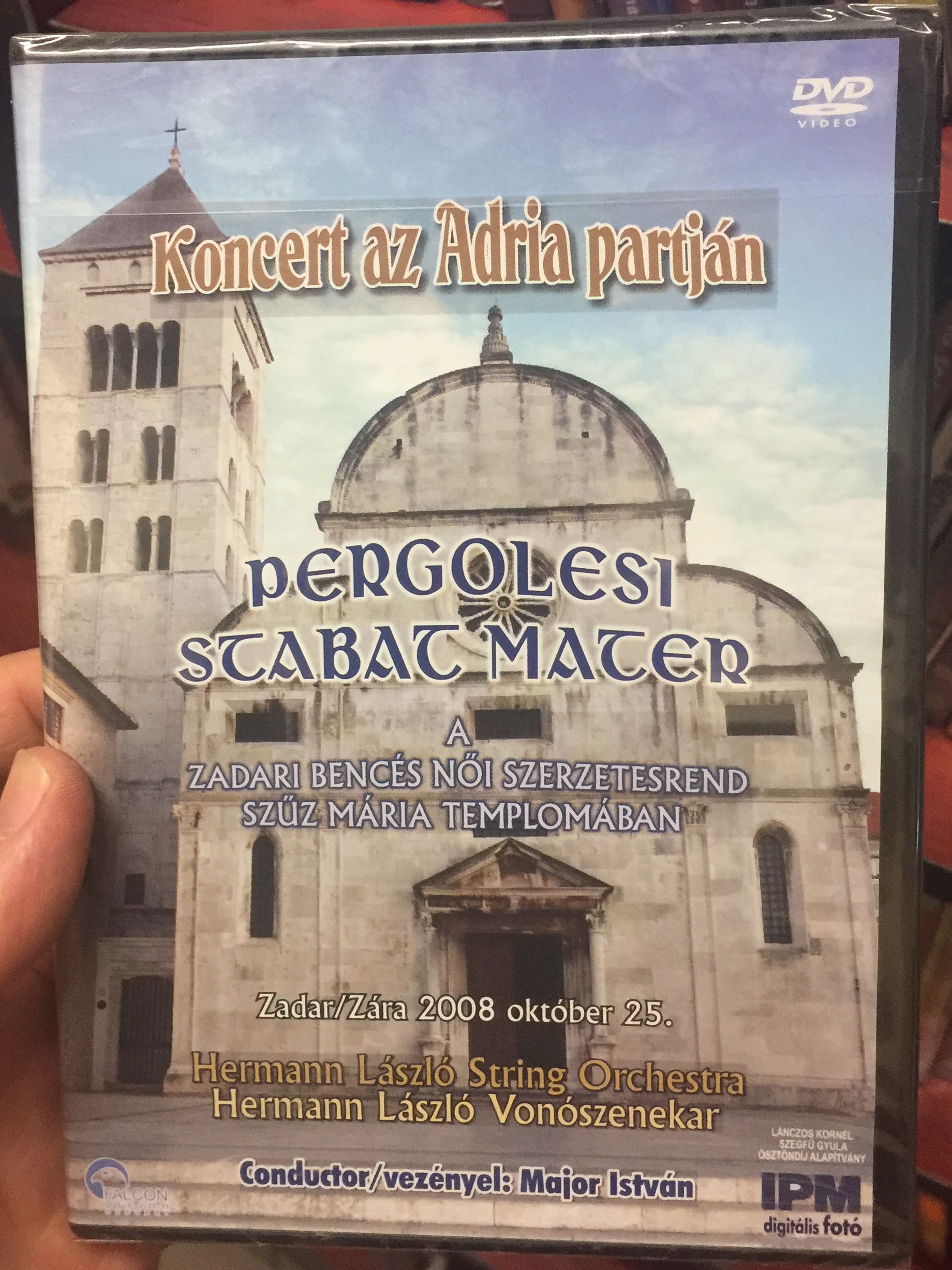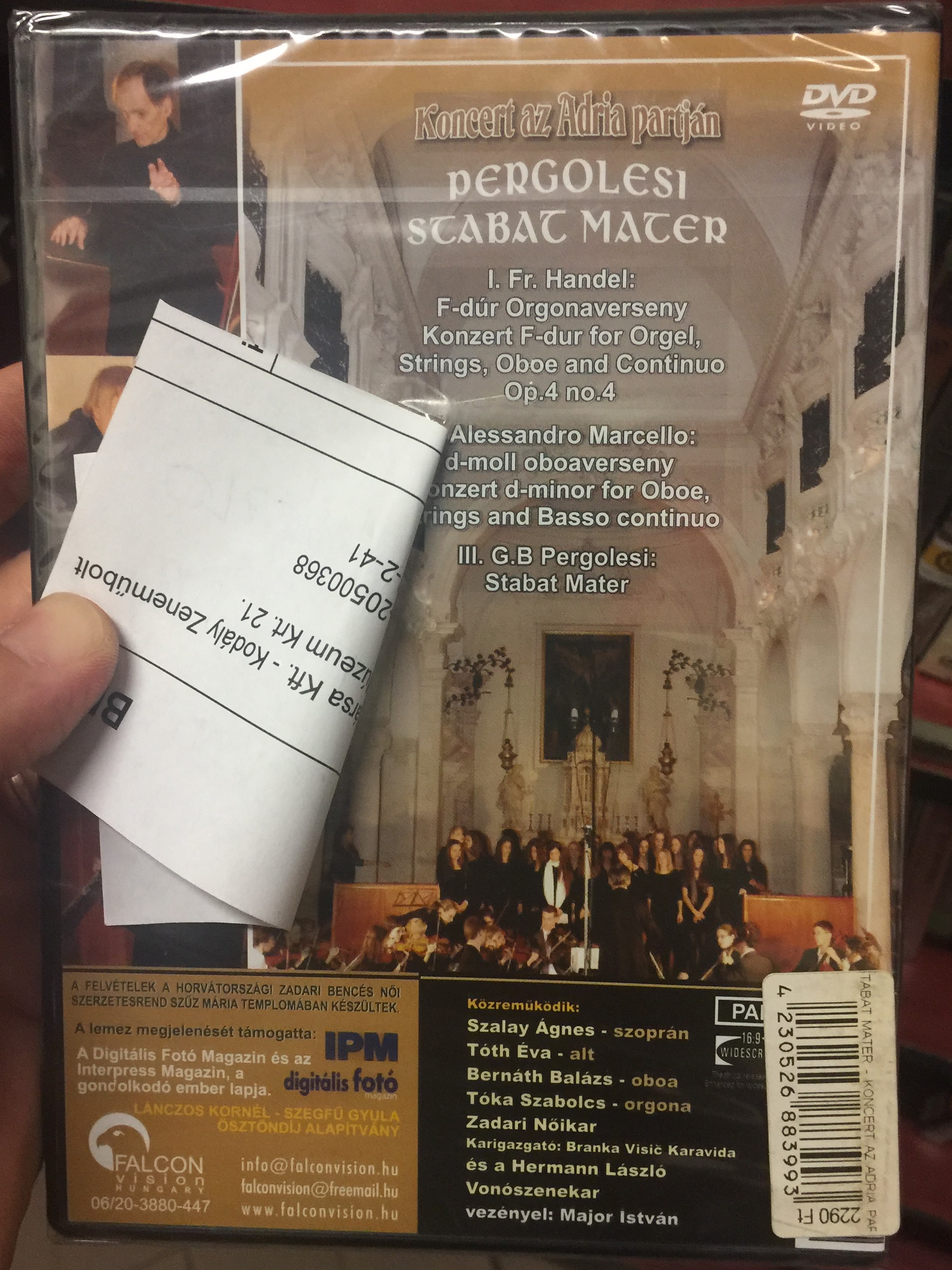Description
Pergolesi - Stabat Mater DVD Koncert az Adria partján / Hermann László String Ochestra / Conducted by Major István / Zadar - Zára 2008 / A zadari bencés női szerzetesrend szűz Mária Templomában
UPC 4230526883993
REGION 2 PAL DVD
MADE IN HUNGARY
AUDIO: Dolby 5.1
Hungarian Summary:
Pergolesi - Stabat Mater - Koncert az Adria partján - A Zadári bencés női szerzetes rend Szűz Mária Templomában - Zadár/Zára 2008 október 25.
Hermann László String Orchestra - Hermann László Vonószenekar
Conductor / Vezényel: Major István
Stabat Mater (P.77) is a musical setting of the Stabat Mater sequence, composed by Giovanni Battista Pergolesi in 1736. Composed in the final weeks of Pergolesi's life, it is scored for soprano and alto soloists, violin I and II, viola and basso continuo (cello and organ).
Many pieces which were said to have been composed by Pergolesi have been misattributed; the Stabat Mater is definitely by Pergolesi, as a manuscript in his handwriting has been preserved. The work was composed for a Neapolitan confraternity, the Confraternita dei Cavalieri di San Luigi di Palazzo, which had also commissioned a Stabat Mater from Alessandro Scarlatti. Pergolesi composed it during his final illness from tuberculosis in a Franciscan monastery in Pozzuoli, along with a Salve Regina setting, and, as it is said, finished it right before he died.
The Stabat Mater is one of Pergolesi's most celebrated sacred works, achieving great popularity after the composer's death. Jean-Jacques Rousseau showed appreciation for the work, praising the opening movement as "the most perfect and touching duet to come from the pen of any composer". Many composers adapted the work, including Giovanni Paisiello, who extended the orchestral accompaniment, and Joseph Eybler, who added a choir to replace some of the duets. Bach's Tilge, Höchster, meine Sünden is a parody cantata based on Pergolesi's composition.
The work was not without its detractors. Padre Martini criticised its light, operatic style in 1774, and believed it was too similar to Pergolesi's comic opera La serva padrona to adequately deliver the pathos of the text.























